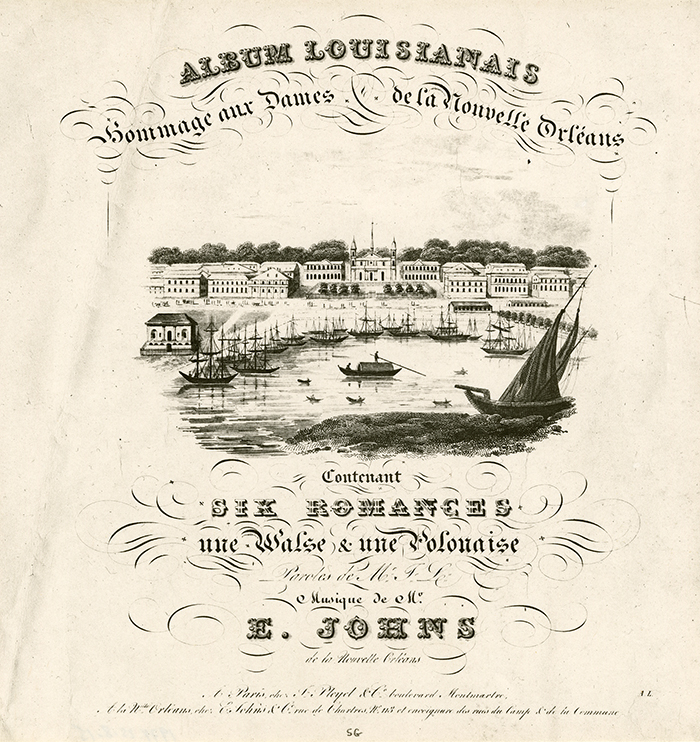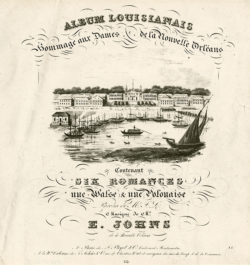Paul Emile Johns
Paul Emile Johns is credited with the first performance of a Beethoven piano concerto, in New Orleans in 1819.

Courtesy of The Historic New Orleans Collection
Louisianais hommage aux Dames. Johns, Paul Emile (Composer)
Emile Johns is credited with the first U.S. performance of a Beethoven piano concerto, in New Orleans in 1819. The son of Barbara Tcheszka and Frederic Johns, he was born in Cracow, Poland. U.S. immigration records show his birth as both 1798 and 1800. Johns is believed to have been educated in Vienna.
The next recorded performance of a Beethoven piano concerto in the United States occurred in Boston in 1842. An indication of Johns’s musical talent is attested to by his performance within one week of J. L. Dussek’s Second Piano Concerto and Steibelt’s Third Piano Concerto, in New Orleans on February 2 and 4, 1824. As a composer, his works included “Grand Military March for Orchestra,” “The Warlike Symphony,” and the comic one-act opera The Military Stay.
All of these works appear to be lost, possibly due to a fire in Johns’s office at 89 Chartres Street in New Orleans. He composed the album Louisianaise: Hommage aux Dames de la Nouvelle Orleans, which does survive, as well as several other piano compositions. Co-published with Pleyel in Paris, Louisianaise appeared between 1831 and 1834. The album contains six sentimental French songs, each dedicated to a different lady of New Orleans, along with a valse and a polonaise. A frequent visitor to Paris, France, he and famed composer Frédéric Chopin became friends. Chopin dedicated his “Opus 7 Mazurkas” to Johns. Johns also became known for his interpretations of Chopin’s compositions. In later years, in several Canadian and U.S. cities, pianists performing Chopin were compared to Johns.
By 1834, Johns had established a printing business and specialized in law books. In the 1840s, he became a cotton merchant. All the while, he continued to hold the post of organist of the St. Louis Cathedral in New Orleans. He died in Paris on August 10, 1860.
